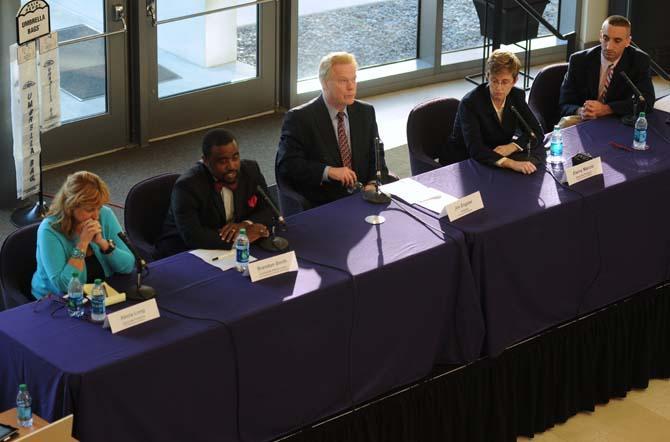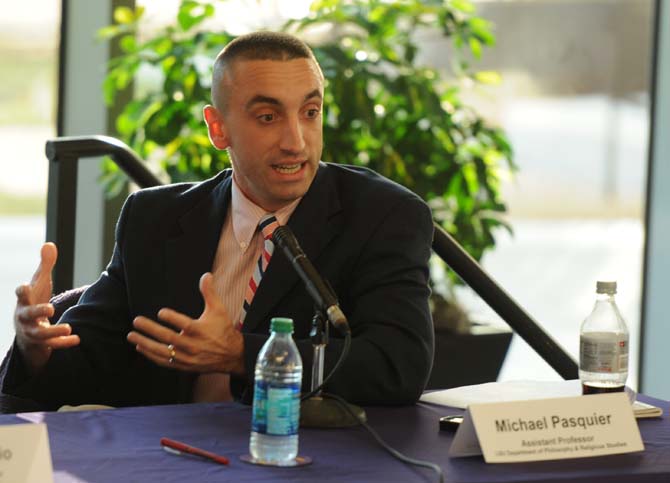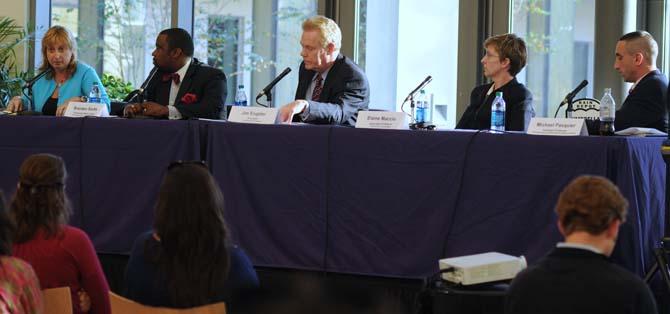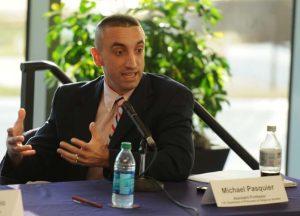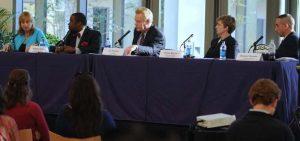Panelists stressed the importance of not grouping voters based on political and religious views at the final University-sponsored panel concerning social issues in the presidential election Thursday evening.
Panelist and religious studies assistant professor Michael Pasquier said Americans should think more critically about “lumping people into groups,” and cited Vice President Joe Biden and vice presidential candidate Paul Ryan as examples of two separate views on Catholicism as it plays into politics.
In regard to Catholicism and to abortion, Biden said in the vice presidential debate that he would keep his religious and political stances separate, while Ryan said he didn’t know how anyone could keep the two apart.
Pasquier said this emphasized the differences between those who seem to have the same views on an issue.
Panelist and associate professor of history Alecia Long agreed with Pasquier and pointed out how differences can affect women’s support of each presidential candidate.
“The gender gap is closing, which shows women aren’t uniform actors,” Long said.
Toleration in the face of diversity was a theme of the night as well.
After a woman in the crowd voiced her opinion that Mormonism is not a part of Christianity, Pasquier said a “heightened awareness of common ground that can be found between religions” is important to moving forward in society.
Panelist and associate professor of social work Elaine Maccio said one day, she hopes people will stop labeling others based on individual beliefs.
“I hope we can stop defining people by telling them who they are,” Maccio said.
Long said her college-aged niece supports Mitt Romney, which defies the stereotype that younger voters are liberal.
She said she understands and respects her niece’s position, even though she doesn’t hold the same views.
“All of us have a constellation of concerns, and that determines who you vote for,” Long said.
University Relations and Marketing Interim Vice President Todd Simmons said the purpose of the panel series was to motivate students to learn about issues that play a role in the presidential election, to integrate social media to engage students and to put University researchers in front of the public to show LSU has some of the best professors in the world.
The efforts of the E.J. Ourso College of Business, Manship School of Mass Communication, School of the Coast and Environment, and the LSU Office of Communications and University Relations may be repeated in two years during the race for Mary Landrieu’s Senate seat, though not in as broad of a manner, he said.
“This series was a test run. Who knows where technology will be then? Maybe next time I won’t have to have an iPad and a laptop in front of me to run it,” Simmons said.


